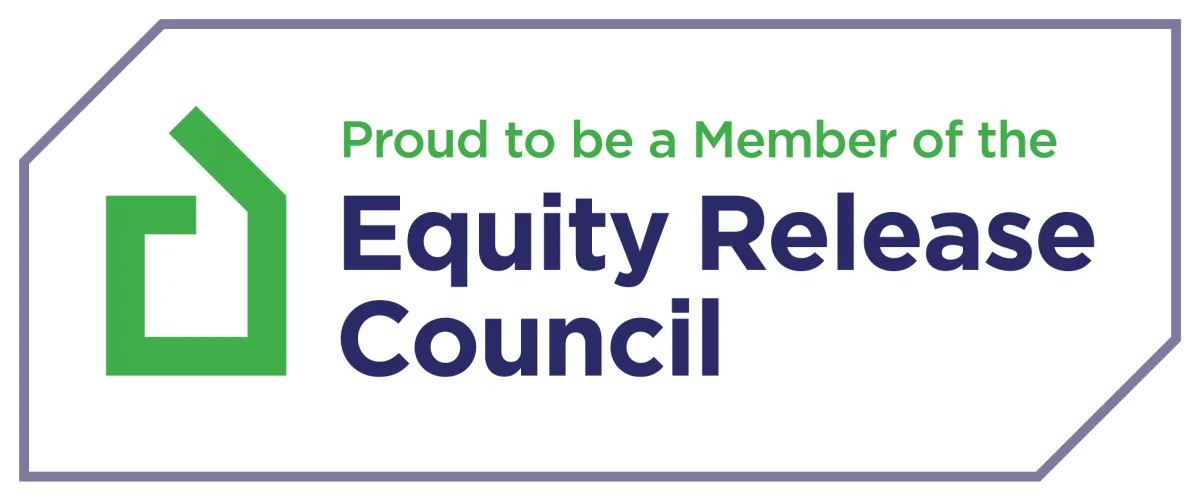Beginners' Guide
Start Your Equity Release Journey with Confidence
Equity release can be a valuable option for unlocking cash from your home in later life, but it is important to understand how it works. This beginners guide breaks it down clearly helping you make informed and confident decisions every step of the way.

Understanding Equity Release
Equity release lets homeowners aged 55 and over access some of the cash tied up in their home without needing to move out or make monthly repayments.
The most popular type is a lifetime mortgage where you borrow a portion of your home value and the loan plus interest is repaid when you pass away or move into long-term care.
-
55+
Minimum Age
Available for homeowners aged 55 and over.
£70k
Min Property Value
Typical minimum value of your main residence.
Key Benefit
You retain full ownership of your home.
Receive a tax-free lump sum to spend as you wish.
Interest is typically rolled up, meaning no monthly repayments are required.
What can Equity Release be used for?
Equity release can provide a flexible source of funds that you can use in a variety of ways to enhance your lifestyle support your plans or meet financial needs in later life.

Home Improvements
Make your property more comfortable accessible or energy efficient.

Lifestyle & Travel
Fund a once in a lifetime holiday or enjoy more financial freedom in retirement.

Family Support
Help children or grandchildren get on the property ladder with a living inheritance.

Major Purchases
Cover care costs purchase a new car or manage unexpected expenses without dipping into savings.
Can it be used to purchase a property?
Absolutely! Equity release can also be a solution for those who want to move but still need to borrow in later life, perhaps to buy a home closer to family, relocate to a preferred area, or purchase a more accessible property.
The funds can cover the shortfall between your current home’s sale price and the cost of your new property, avoiding the need for traditional repayment mortgages with strict affordability checks.
As with any equity release arrangement, it’s essential to take qualified advice to ensure it’s the right route for your circumstances and that you understand the long-term implications.

How is it different from the past?
Equity release today is a world away from the risky and unregulated plans of the 1990s. Modern plans are strictly regulated by the Financial Conduct Authority (FCA), and providers who are members of the Equity Release Council must meet high consumer protection standards.

No Negative Equity
Included in all Council-approved plans. You will never owe more than your home is worth even if property prices fall.

Right to Stay
You have the guaranteed legal right to stay in your property for life. You can never be forced to move out.

Fixed/Capped Rates
Interest rates are fixed or capped providing certainty. The emphasis is now on clear advice transparency and suitability.
"The emphasis now is on clear advice, transparency, and long-term suitability—helping people make decisions that are right for them and their families."
How is the Loan Calculated?
It is based on two simple factors. Generally, the older you are, the more you can release.

1. Your Age
The older you are, the higher the percentage of your home's value you can usually release. Plans start from age 55.

2. Property Value
The current market value of your home. A professional valuation will be carried out to confirm this.

Bonus: Health & Lifestyle
Certain health conditions or lifestyle factors might qualify you for an "Enhanced Plan", allowing you to release more money.
Who Offers These Plans?
You are in safe hands. Equity release is only offered by regulated lenders who must follow strict rules to protect you.

Strictly Regulated Lenders
Only approved lenders offer equity release products, and they must follow strict rules set by the FCA (Financial Conduct Authority).
Some of the biggest and most trusted names in financial services provide these plans, including:
High-Street Banks
Specialist Providers
Important Requirement
You must get advice from a qualified equity release adviser before proceeding.
This mandatory step ensures your safety by confirming:
The plan is specifically tailored to your needs.
All alternatives are considered first.
Why Professional Advice Matters
Equity release is a long term decision that can impact your finances inheritance and benefits. That is why it is a legal requirement to take regulated advice from a qualified adviser before proceeding.
A good adviser will:
Explain all your options (including alternatives)
Recommend a suitable plan from a range of lenders
Help you understand the long-term impact
Involve your family if appropriate
Ensure you're protected by Equity Release Council safeguards
Taking advice doesn’t commit you to anything—it just gives you clarity and confidence to decide what’s right for you.
Get the right advice and the confidence that comes with it
Take the first step towards financial clarity today. There is no obligation and no pressure. Just a friendly conversation to answer your questions.
Fees
A Lifetime Mortgage may reduce the value of your estate and could affect your entitlement to benefits. To understand the features and risks please ask us for a personalised illustration.
There will be a fee for mortgage advice. The precise amount will depend upon your circumstances but we estimate that it will be £1495 for an equity release/retirement mortgage.
Important Information
Aspect Mortgages Limited is authorised and regulated by the Financial Conduct Authority and is entered on the Financial Services Register (https://register.fca.org.uk/s/) under reference 305352. The FCA do not regulate Business Buy to Let Mortgages or Estate Planning.
As independent advisers we have access to the whole market, except for deals that you can only obtain by going direct to a lender. Registered in England and Wales No: 051013801. 16 St Thomas' Road, Chorley, PR7 1HR.
Your home may be repossessed if you do not keep up repayments on your mortgage.
© Copyright 2026 Aspect Mortgages Limited


